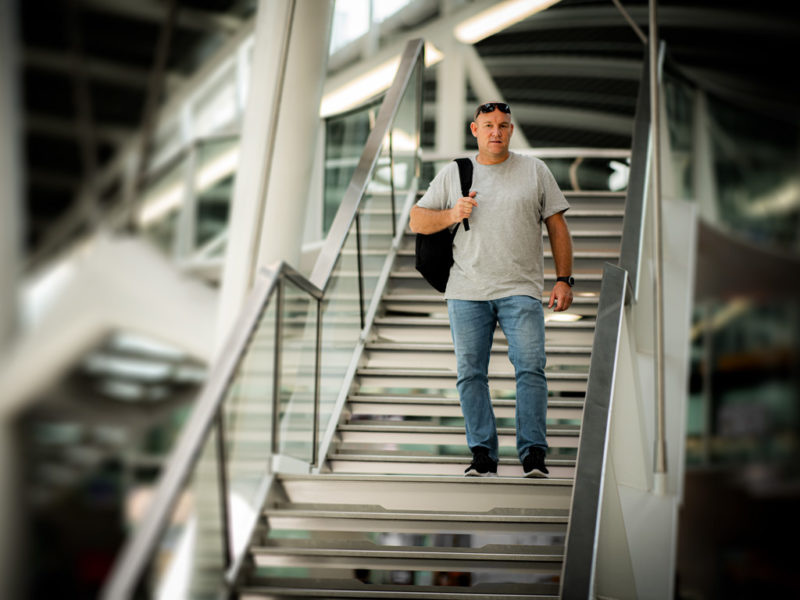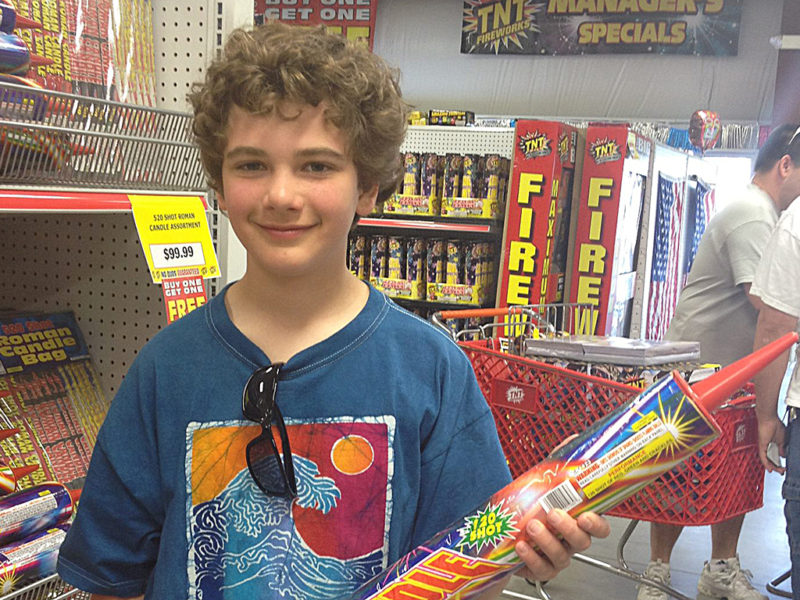We’ll start at his end. Phil Librizzi is dead. He officially died 30 years ago when someone in his family realized he wasn’t going to be returning to his body which had been kept alive in a coma for several years.
Assuage
I visited him twice in that time, and I’ll spare you all the details. It was harrowing.

On my first visit, Phil was sharing the hospital room with three other people who’d each had similar fates. They all had their private comas, each of them somehow related to automobiles. Relatives would come to visit, first frequently, then less so. The idea that maybe they could decipher some hidden secret code to unlock their loved ones was slowly abandoned as reality replaced hope.
Phil’s eyes were open, and they seemed to scan the room in a fixed pattern, right to left in staccato movements. They would then sweep left to right in one smooth motion and repeat in a tireless loop. I remember thinking at the time that these movements echoed the functions of a typewriter. I could hear the clacking of the keys and then the bell call out loudly, “Bing!” as his eyes then mimicked the return of the carriage to type another line. I imagined him composing an unseen letter from an uncharted locale. Looking into his eyes I was desperate to find some sign of recognition, any indication of the impermanence of his state.
Few occasions broke through and allowed him to hold his gaze upon you for the briefest of moments, and you thought that maybe you had ignited a spark of recognition. Saying his name loudly could sometimes do it. But it was pretty rare.
Towards the end of that first visit, I sat in my visitor’s chair quietly as the sounds of the myriad of machines hummed away. Each of them had their distinct sounds and rhythms as technology and blind will seemed intent on keeping all of these smashed bodies alive. Although I was the only visitor in the room, a sudden and very loud voice shook me to my core, “Look out for the car!” A patient in the bed behind me had suddenly sat upright in bed and was apparently reliving the last seconds before his accident.
I jumped out of my chair and ran out of the room as if my head was on fire. I found a nurse in the flickering green fluorescent hallway and frantically tried to explain what had just happened. I thought it was some kind of medical breakthrough and the hand of God decided to be merciful on a whim just as I happened to be in the room.
“He does that,” the nurse explained to me sympathetically, quickly reducing the moment from profound to mundane with a shrug.
It took me a year to build up the courage to return, now without hope, but just to say goodbye.
When Mrs. Librizzi found her son in the driveway crushed under a car that she had always hated, she couldn’t accept the idea that Phil had died that day. They kept his body alive for years as her marriage slowly crumbled, their bank accounts dissolved, the house was lost, and the other children drifted away.
I saw Mr. Librizzi around town occasionally over the next few years. He had traded in his audacious Wall St. demeanor for impoverished humility, his Mercedes for a bicycle. He would check the coin return slots of the now obsolete payphones that were once mounted in rows at the train station. He’d make his way down the line slowly, checking each slot one by one, only occasionally finding a bit of forgotten change.
I remember another time I had said goodbye to Phil as I was heading back to college after a visit home for vacation, a few months before his accident. I stopped by his house to see him before heading upstate and found him in his driveway. He was under a crumbling Alpha Romeo, which was up on a jack. He was always working on a car, and the family always had several in various states of disrepair. Phil understood cars intuitively as if he had invented the combustion engine. It was in his blood. It was Phil who had taught me years earlier how to drive a stick shift.
His brother-in-law came out of the house as we talked in the driveway. “You should get yourself a real jack, that thing looks so flimsy… it’s going to give out on you one day.”
It turns out he was right, because just six months later that jack did give out. Phil was under the car when it happened, and tragically, he had removed one of the wheels from the car so that when that jack snapped in half, the car fell lower then if it had had all of its wheels on.
My brother came up to visit me unexpectedly at school to tell me the news about Phil’s accident. We were in a restaurant as he explained what had happened, and how it took hours for Phil’s mother to find him. As we sat there I cried, with the eyes of strangers watching as I processed the news. It wasn’t just his loss, but I also felt a deep pang of guilt for a thought which I had about Phil years earlier. He and I were fighting about something, nothing, I’m sure. At one point I wished upon him an unspeakable fate: That he should be expelled into outer space with enough oxygen to last him for years so that he would exist in limbo, but would remain silent to the rest of the world. I had gotten my wish.





